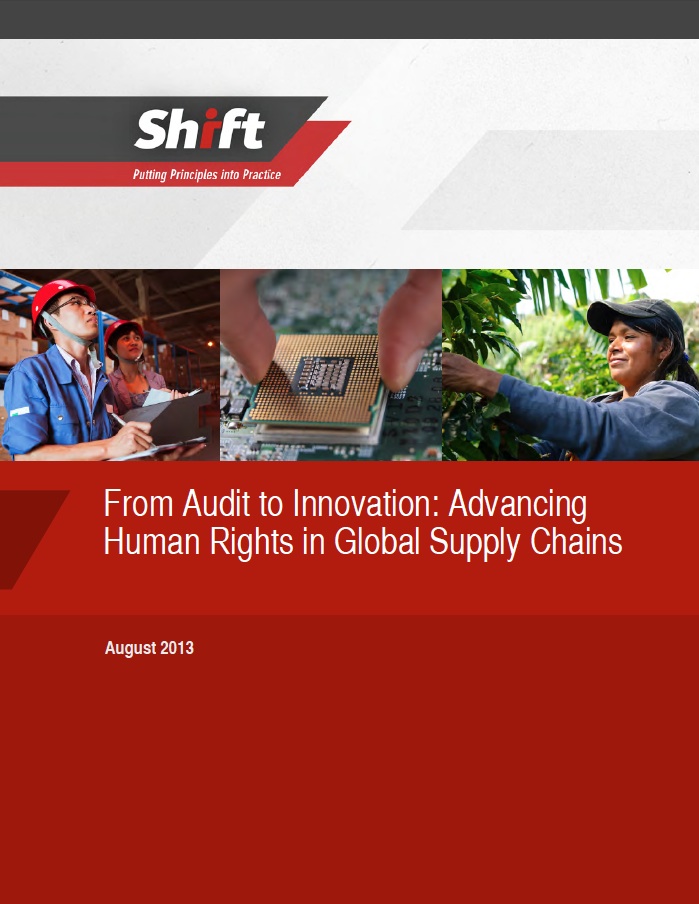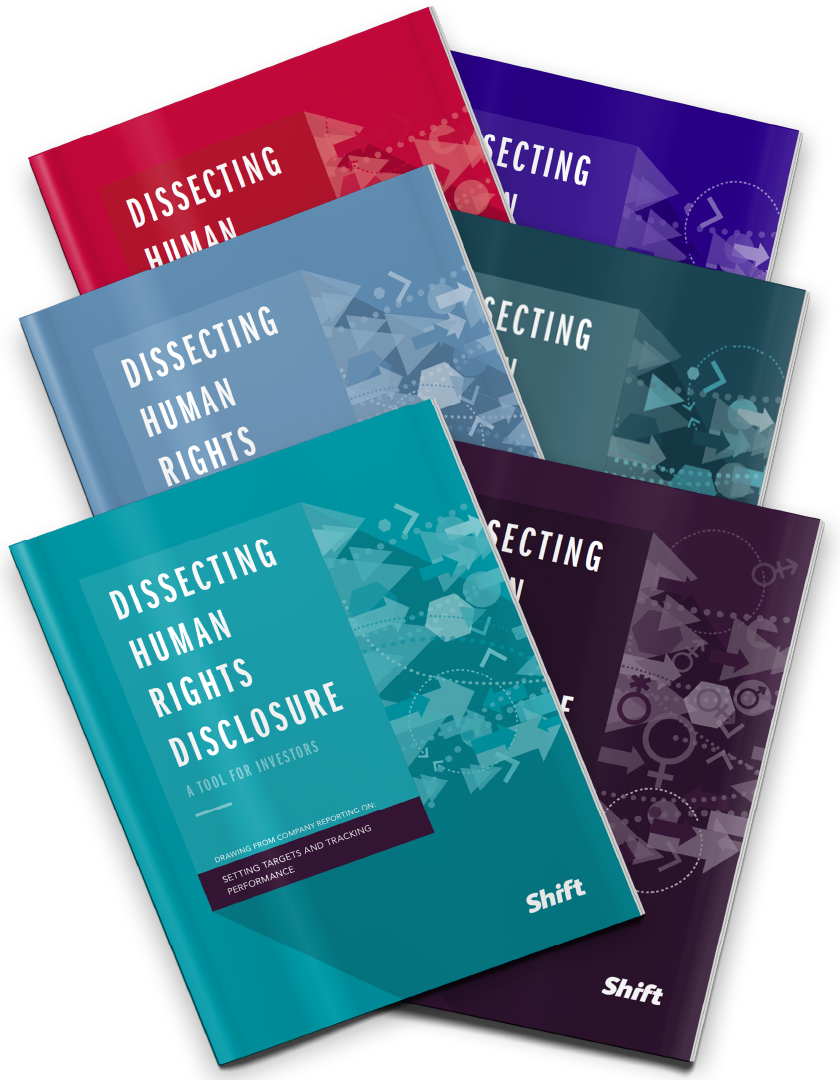Summary
Over the last several decades, global companies have increasingly recognized their roles and responsibilities in addressing social impacts and labor conditions within their supply chains – a responsibility reaffirmed by the Guiding Principles.
As awareness of this responsibility has increased, so too has a recognition of the limitations of the conventional approach to tackling these issues – social compliance auditing. Despite the hundreds of thousands of social compliance audits conducted each year to ensure minimum workplace conditions in companies’ supply chains, there is little evidence that they alone have led to sustained improvements in many social performance issues, such as working hours, overtime, wage levels and freedom of association.
There are many reasons why the traditional audit paradigm has struggled to produce sustainable improvements in these and other key areas of social performance, with each of the following playing their respective roles:
- A lack of disclosure by suppliers of accurate information on their performance during some audit processes, calling into question the value and validity of information gathered;
- A lack of capacity among suppliers to address issues that have been identified for remediation in a sustainable way;
- A lack of perceived incentives among suppliers, both external and internal, to address social performance issues, and a corresponding lack of commitment to invest in sustainable improvements;
- Systemic challenges that are beyond the control of individual suppliers, including social context, regulatory environments, and industry-wide issues;
- The purchasing practices of global brands and retailers, and a need to recognize and improve upon the role they themselves may play in contributing to impacts on workers.
These issues are no secret to global brands and retailers, many of whom have grown increasingly frustrated with the limitations of the traditional audit paradigm. In the absence of clear alternatives, many companies continue to base their due diligence and remediation solely on an audit approach that they privately acknowledge is not producing sustainable results.
However, a number of leading brands and retailers are attempting to change the conversation. They are openly acknowledging what everyone knows – that audits alone have not produced sustainable change.
Instead they are asking – themselves, their industries, their suppliers, and other stakeholders – what to do about it. They have a growing body of individual and collective experience with alternative and supplementary approaches to addressing social performance issues in their supply chains – approaches that seek to recast their relationships with suppliers, from “policemen” to “partners.”
This research, undertaken by Shift in collaboration with the Global Social Compliance Programme (GSCP), is based on conversations with leading companies, industry experts, and – for the four case studies presented – suppliers and other stakeholders. The first part of the report begins by identifying 10 leading trends and elements that form this new generation of social compliance programs for supply chains:
- The shift from pass/fail compliance to comprehensive continuous improvement programs;
- Replacing audits with collaborative assessment and root cause analysis;
- The role of grievance mechanisms in improving social performance;
- The integration of capacity-building approaches for suppliers;
- Different forms of partnerships between global brand companies and civil society organizations;
- Providing commercial incentives to suppliers for improvements in social performance, such as price, volume, duration, and supplier preference;
- Developing metrics to help suppliers identify the business case for better social performance;
- Efforts by brands to use their leverage to address systemic issues;
- Industry-wide collaboration to tackle systemic issues;
- Aligning internal purchasing practices with social commitments made by global brands and retailers.
In the second part of the report, we highlight four company case experiences in more depth, whose approaches combine many of the elements identified above to address complex social performance challenges in supply chains:
- Timberland’s approach to collaborative assessment, which has transformed its relationship with suppliers globally (p. 22);
- Chiquita’s holistic approach to its passion fruit supply chain in Costa Rica, which combines commercial incentives and innovations, capacity-building, civil society partnerships, and adherence to social and environmental standards and practices (p. 34);
- Tesco’s approach to promoting sustainable improvements in addressing issues within its agricultural supply chain in South Africa, premised on the support of local initiatives driven by local actors (p. 42);
- HP’s multilateral approaches to a range of systemic challenges in different parts of its IT supply chain, through which it collaborates with industry, civil society, and government actors to address industry-wide issues (p. 49).
This report does not attempt to imply that any company has the best model for, nor a perfect record in, addressing supply chain human rights challenges. Nor did the research seek to rigorously test the models discussed. Rather, it explores innovative models used by leading companies, who themselves report their effectiveness, as a basis for further analysis and evaluation.




